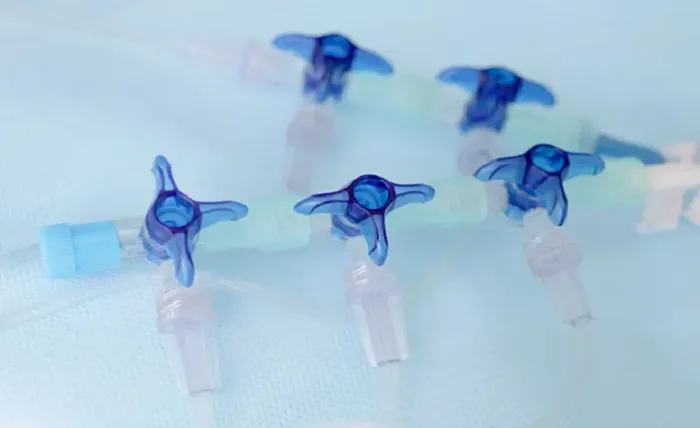In the world of custom plastic injection molding, efficient design validation and iterative prototyping are key to successful product development. With the advancements in rapid prototyping technologies, businesses can now leverage these techniques to accelerate the transition from concept to production. In this article, we will explore how custom plastic injection molding suppliers can utilize rapid prototyping for iterative design, with a particular focus on injection molded enclosures.
The Role of Rapid Prototyping in Custom Plastic Injection Molding
Rapid prototyping plays a pivotal role in custom plastic injection molding by providing a quicker and more cost-effective method of producing functional prototypes. It allows businesses to create physical models of the desired product, enabling them to evaluate form, fit, and function before proceeding with full-scale production. By leveraging rapid prototyping, custom plastic injection molding suppliers can refine their designs, identify and rectify any potential issues early on, and accelerate the product development process.
Validating Design Concepts with Injection Molded Enclosures
Injection molded enclosures are critical components in various industries, including electronics, automotive, and consumer goods. Rapid prototyping enables custom plastic injection molding suppliers to validate design concepts for these complex enclosures. By producing injection molded prototypes, they can assess factors such as wall thickness, geometry, assembly fit, and overall functionality. This validation process ensures that the design meets all requirements and specifications before committing to production tooling, saving time and cost associated with tooling modifications.
Iterative Design and Refinement
One of the significant advantages of rapid prototyping is its ability to facilitate iterative design and refinement. Custom plastic injection molding suppliers can produce multiple iterations of a design quickly and cost-effectively. This enables them to make modifications based on feedback and identify areas for improvement. By repeating this cycle of prototyping, evaluation, and refinement, suppliers can optimize the design and ensure that the final product meets customer expectations, reducing the need for costly design changes during production.
Cost and Time Savings
Rapid prototyping in custom plastic injection molding offers significant cost and time savings throughout the product development process. By validating designs early on and identifying any required changes during the prototyping stage, suppliers can avoid expensive modifications once production begins. Rapid prototyping also helps eliminate uncertainties and reduces the risk of setbacks, resulting in shorter lead times and faster time-to-market. These cost and time savings are highly beneficial, allowing businesses to stay competitive and capture market opportunities more efficiently.
Material Selection and Testing
Material selection is a critical aspect of custom plastic injection molding. Rapid prototyping allows suppliers to test different materials and assess their suitability for the desired application. By producing prototypes with various materials, they can evaluate factors such as strength, durability, and appearance. This testing phase ensures that the chosen material meets the functional and aesthetic requirements before proceeding with production, reducing the risk of material-related issues and associated costs.
Collaboration and Communication
Rapid prototyping fosters collaboration and effective communication between custom plastic injection molding suppliers, designers, and clients. Physical prototypes provide a tangible representation of the design, facilitating clearer communication and mutual understanding. This allows stakeholders to identify any design flaws or improvements and make informed decisions. Improved collaboration streamlines the design validation process, enhances the overall product development timeline, and ensures that the final product meets all specifications.
Design for Manufacturability
Design for manufacturability is a critical consideration in custom plastic injection molding. Rapid prototyping enables suppliers to assess the manufacturing feasibility of a design during the prototyping stage. By producing injection molded prototypes, they can evaluate factors such as part geometry, draft angles, gate locations, and the ejection system. This assessment ensures that the design is optimized for efficient injection molding processes, reducing the risk of manufacturing issues and optimizing overall production efficiency.
Seamless Transition to Production
The integration of rapid prototyping with custom plastic injection molding allows for a seamless transition from prototyping to full-scale production. Once the design has been validated through rapid prototyping, suppliers can proceed confidently to production tooling. The insights gained during the prototyping stage provide valuable information for optimizing tooling, fine-tuning the injection molding process, and ensuring consistent, high-quality production from the start.
Leveraging the Expertise of Custom Plastic Injection Molding Suppliers
Collaborating with experienced custom plastic injection molding suppliers is essential for successfully leveraging rapid prototyping for iterative design. Their expertise and knowledge of materials, manufacturing processes, and design optimization techniques are invaluable. By partnering with such suppliers, businesses can navigate the rapid prototyping process more effectively, make informed decisions, and achieve the best possible outcomes in terms of design validation, time efficiency, cost savings, and overall product quality.
Conclusion
Rapid prototyping has revolutionized the custom plastic injection molding industry, enabling suppliers to streamline the design validation process and achieve iterative design improvements. By leveraging rapid prototyping techniques, such as injection molding of prototypes, suppliers can validate design concepts, refine their products, and bring them to market faster. The ability to validate designs, reduce the risk of errors, save costs, and optimize the manufacturing process significantly benefits both suppliers and their clients. By embracing the power of rapid prototyping, custom plastic injection molding suppliers can enhance their competitiveness, deliver high-quality products, and meet the evolving demands of the market.



